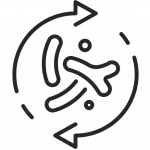Top methods for improving your immune system naturally

The immune system plays a crucial role in protecting our bodies from infections and diseases. It is a complex network of cells, tissues, and organs that work together to defend against harmful invaders like bacteria, viruses, and toxins. While synthetic supplements and medications can aid in bolstering our immune defenses, natural methods often provide a safer, more holistic approach. By focusing on nutrition, physical activity, lifestyle changes, natural supplements, and immune system assessments, we can naturally enhance our immune function and overall health. This article will delve into these top methods, providing you with practical and effective strategies to boost your immune system naturally.
Immune-Boosting Foods
A well-balanced diet rich in essential vitamins and minerals is fundamental for maintaining a robust immune system. Foods that are high in vitamin C, such as citrus fruits like oranges, lemons, and grapefruits, are particularly beneficial as they can increase the production of white blood cells, which are key to fighting infections. Garlic is another powerful food; it contains allicin, a compound known for its infection-fighting properties. Adding garlic to your meals can provide a significant immune boost. Ginger, renowned for its anti-inflammatory and antioxidant properties, can enhance immune response and help combat illnesses. Including green leafy vegetables like spinach and kale in your diet is also important as they are packed with vitamins A, C, and E, fiber, and numerous antioxidants that support immune health.
Importance of Hydration
Hydration is often overlooked but is vital for maintaining a healthy immune system. Water is essential for the production of lymph, which carries white blood cells and other immune system cells throughout the body. Proper hydration ensures that these cells can move freely and perform their functions effectively. To stay hydrated, aim to drink at least eight glasses of water daily. Incorporating hydrating foods such as cucumbers, tomatoes, and watermelon into your diet can also help. Additionally, limiting the intake of caffeinated and sugary beverages, which can lead to dehydration, is beneficial. Keeping your body well-hydrated helps in flushing out toxins and ensures optimal function of your immune cells.
Regular Exercise
Regular physical activity is a cornerstone of a healthy lifestyle and a strong immune system. Engaging in moderate aerobic exercise, such as brisk walking, cycling, or swimming, can help maintain overall health and improve immune function by promoting good circulation. This enhanced circulation allows immune cells to move more freely and do their job more effectively. Strength training, such as lifting weights or using resistance bands, also contributes to immune health by improving muscle strength and endurance, which in turn supports overall bodily functions. Exercise not only helps in maintaining a healthy weight but also reduces inflammation and supports the immune system’s ability to fight off infections.
Yoga and Meditation
Managing stress is crucial for immune health, as chronic stress can significantly weaken the immune system. Yoga and meditation are excellent practices for reducing stress and enhancing immune function. Yoga combines physical postures, breathing exercises, and meditation to improve overall well-being. Specific yoga poses, such as downward dog and child’s pose, can enhance circulation and reduce stress levels, thus benefiting immune health. Meditation techniques, such as mindful breathing and guided imagery, promote relaxation and help in managing stress. Regular practice of yoga and meditation not only lowers stress hormones but also improves sleep quality, boosts mood, and enhances the body’s ability to fight infections.
Quality Sleep
Quality sleep is vital for a strong immune system. During sleep, the body undergoes repair and regeneration processes, including the production of cytokines, which are proteins that help combat infections and inflammation. A lack of sleep can reduce the production of these protective cytokines, weakening the immune response. To improve sleep quality, it is essential to maintain a consistent sleep schedule, going to bed and waking up at the same time every day. Creating a relaxing bedtime routine, such as reading a book or taking a warm bath, can signal your body that it’s time to wind down. Limiting screen time before bed is also important, as the blue light emitted by phones and computers can disrupt your natural sleep-wake cycle.
Stress Management
Chronic stress has been shown to negatively impact the immune system, making effective stress management crucial for maintaining good health. High levels of stress can lead to the release of stress hormones like cortisol, which suppress the immune system and increase susceptibility to infections. To manage stress, practicing mindfulness and meditation can be highly effective. Engaging in hobbies and activities that you enjoy, such as gardening, painting, or playing a musical instrument, can also help reduce stress levels. Spending time with loved ones and pets provides emotional support and comfort, further aiding in stress reduction. Techniques such as deep breathing exercises, progressive muscle relaxation, and spending time in nature can also significantly lower stress levels and enhance immune function.
Herbal Teas
Herbal teas are not only soothing but also effective in boosting the immune system. Green tea, for instance, is rich in antioxidants like flavonoids and catechins, which enhance immune function. Echinacea tea is known for its immune-stimulating properties and can help reduce the duration of colds and flu. Chamomile tea, on the other hand, has anti-inflammatory and relaxation properties, making it an excellent choice for reducing stress and improving sleep quality, both of which are important for a healthy immune system. Incorporating a variety of herbal teas into your daily routine can provide a natural and enjoyable way to support your immune health.
Probiotics
Probiotics, which are beneficial bacteria that support gut health, play a significant role in immune function. The gut is home to a large portion of the immune system, and maintaining a healthy balance of gut bacteria is crucial for immune health. Probiotics help to enhance this balance, improving the body’s ability to fend off infections. Sources of probiotics include yogurt, kefir, sauerkraut, kimchi, and other fermented foods. Regular consumption of these foods can improve gut health, support digestion, and enhance immune response. Additionally, probiotic supplements can be a convenient option for those who may not get enough probiotics through their diet.
Self-Tests and Monitoring
Monitoring your immune health at home can provide valuable insights into your overall well-being. Simple methods like keeping track of your diet, exercise, and sleep patterns can help identify areas that need improvement. Regular self-assessments, such as checking for consistent energy levels and noting how often you catch colds or other infections, can indicate the state of your immune system. Journaling your daily habits and symptoms can also help in spotting patterns and making necessary lifestyle adjustments to boost immune health.
Professional Assessments
While self-monitoring is helpful, there are times when professional assessments are necessary. If you frequently fall ill or suspect that your immune system may be compromised, seeking advice from a healthcare professional is crucial. Medical tests, such as blood tests and allergy tests, can provide detailed information about your immune function and help identify any underlying issues. Consulting with a healthcare provider can ensure that you receive personalized advice and appropriate interventions to enhance your immune health.
Incorporating natural methods to improve your immune system is a holistic and effective approach to maintaining overall health. By focusing on nutrition, hydration, regular exercise, stress management, quality sleep, and natural supplements, you can significantly boost your immune defenses. Regular self-assessments and professional consultations can also help in maintaining optimal immune function. Embracing these natural strategies not only supports your immune system but also promotes a healthier, more balanced lifestyle. Remember, small, consistent changes can lead to significant improvements in your immune health.
FAQs
What are the best foods to boost the immune system? The best foods to boost the immune system include citrus fruits, garlic, ginger, and green leafy vegetables. These foods are rich in vitamins and antioxidants that support immune health.
How does exercise impact immune health? Exercise promotes good circulation, allowing immune cells to move more freely throughout the body. Regular physical activity, such as aerobic exercises and strength training, can enhance immune function and overall health.
Can stress really affect my immune system? Yes, chronic stress can negatively impact the immune system by increasing the release of stress hormones like cortisol, which suppress immune function. Managing stress through mindfulness, hobbies, and spending time with loved ones can help improve immune health.
Are herbal teas effective for improving immunity? Herbal teas, such as green tea, echinacea tea, and chamomile tea, are rich in antioxidants and have immune-stimulating properties. Regular consumption of herbal teas can provide a natural boost to the immune system.
How can I tell if my immune system is strong? You can monitor your immune health by keeping track of your diet, exercise, and sleep patterns. Regular self-assessments, such as noting how often you catch colds or infections, can also indicate the state of your immune system. Professional assessments and medical tests can provide detailed information about your immune function.









